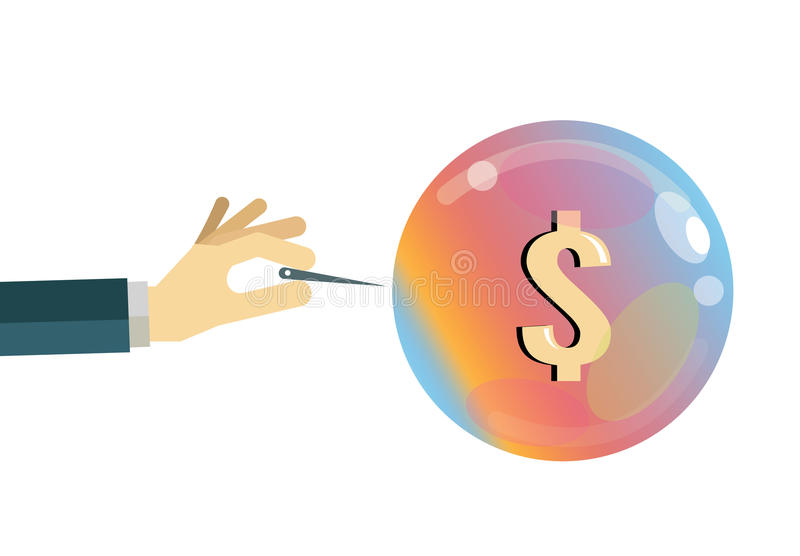
There are some important things to keep in mind if you are a beginner forex trader. First and foremost, ensure that your broker is properly regulated. You will be safer and less likely to get scammed if your broker is properly regulated. A demo account or cent account is a good way to start. Remember to not deposit too much money yet. While bonuses and other freebies might look appealing, you should first make a minimum deposit.
Logikfx's forex 101 course has taught us some lessons
Logikfx, a website that offers online currency trading courses, is something you have probably heard about. Logikfx is a paid course, but it focuses on the basics. You can use guided annotations to help you understand and even build a quiz. You'll get a wealth of information in a fun environment, with no boring lectures.

Leverage
Professional traders often refer to leverage as a two-edged sword. It can prove to be very beneficial when done correctly, but it can also make you more miserable. Beginners should understand the importance of understanding leverage before they invest their money. Understanding leverage can be complicated. Before you start trading, learn how to correctly use it. Then, you'll be able to maximize your profits with minimum risk. This guide can help you get started forex trading.
Popular currency pairs
In the world of forex trading, the two most popular currency pairs are EUR/USD/CHF. These currency pairs are often highly correlated and also very volatile. These two pairs do have differences. EUR/USD is very liquid and low in spreads. It is popular among beginners and it has little fluctuation. USD/CHF is another currency pair that is popular with beginners. The Swiss Franc is commonly known as the Swiss Frank and has a negative correlation with EUR/USD/CHF.
News headlines
Many traders rely on economic data to inform their decisions. However, news headlines can provide valuable information. Market sentiment can be affected if important trends or events occur in the economy. If a social media company announces a decrease in users, its stock price will likely fall. Investment banks, by contrast, are focused solely on trading revenues. They use economic data in order to make their decisions.

Creating a trading plan
The most crucial aspect of a successful Forex trading career is creating a trading plan. The plan will help you understand how trading fits in your daily life and establish your goals for your trading career. It is essential to have a plan in place so you can avoid making rash decisions or missing out on profitable trades. A trading strategy will allow you to organize your research and help you find statistics. You can also use a trading plan to control your emotions, and make better decisions if a trade does not go as planned.
FAQ
What are the advantages of owning stocks
Stocks are more volatile that bonds. Stocks will lose a lot of value if a company goes bankrupt.
If a company grows, the share price will go up.
In order to raise capital, companies usually issue new shares. This allows investors to buy more shares in the company.
Companies borrow money using debt finance. This allows them to get cheap credit that will allow them to grow faster.
Good products are more popular than bad ones. As demand increases, so does the price of the stock.
Stock prices should rise as long as the company produces products people want.
Are stocks a marketable security?
Stock is an investment vehicle that allows you to buy company shares to make money. You do this through a brokerage company that purchases stocks and bonds.
You can also invest in mutual funds or individual stocks. There are actually more than 50,000 mutual funds available.
These two approaches are different in that you make money differently. Direct investments are income earned from dividends paid to the company. Stock trading involves actually trading stocks and bonds in order for profits.
Both of these cases are a purchase of ownership in a business. You become a shareholder when you purchase a share of a company and you receive dividends based upon how much it earns.
Stock trading allows you to either short-sell or borrow stock in the hope that its price will drop below your cost. Or you can hold on to the stock long-term, hoping it increases in value.
There are three types: put, call, and exchange-traded. Call and put options give you the right to buy or sell a particular stock at a set price within a specified time period. ETFs are similar to mutual funds, except that they track a group of stocks and not individual securities.
Stock trading is very popular because it allows investors to participate in the growth of a company without having to manage day-to-day operations.
Stock trading is not easy. It requires careful planning and research. But it can yield great returns. This career path requires you to understand the basics of finance, accounting and economics.
Can bonds be traded?
The answer is yes, they are! As shares, bonds can also be traded on exchanges. They have been for many years now.
You cannot purchase a bond directly through an issuer. They must be purchased through a broker.
This makes buying bonds easier because there are fewer intermediaries involved. This means that selling bonds is easier if someone is interested in buying them.
There are many different types of bonds. While some bonds pay interest at regular intervals, others do not.
Some pay interest annually, while others pay quarterly. These differences allow bonds to be easily compared.
Bonds can be very useful for investing your money. You would get 0.75% interest annually if you invested PS10,000 in savings. If you were to invest the same amount in a 10-year Government Bond, you would get 12.5% interest every year.
If all of these investments were accumulated into a portfolio then the total return over ten year would be higher with the bond investment.
What is a bond and how do you define it?
A bond agreement is a contract between two parties that allows money to be transferred for goods or services. It is also known as a contract.
A bond is typically written on paper, signed by both parties. The document contains details such as the date, amount owed, interest rate, etc.
The bond is used when risks are involved, such as if a business fails or someone breaks a promise.
Many bonds are used in conjunction with mortgages and other types of loans. The borrower will have to repay the loan and pay any interest.
Bonds are also used to raise money for big projects like building roads, bridges, and hospitals.
It becomes due once a bond matures. When a bond matures, the owner receives the principal amount and any interest.
Lenders can lose their money if they fail to pay back a bond.
How can people lose money in the stock market?
Stock market is not a place to make money buying high and selling low. You can lose money buying high and selling low.
The stock market is for those who are willing to take chances. They would like to purchase stocks at low prices, and then sell them at higher prices.
They are hoping to benefit from the market's downs and ups. If they aren't careful, they might lose all of their money.
What is security on the stock market?
Security is an asset which generates income for its owners. Most security comes in the form of shares in companies.
One company might issue different types, such as bonds, preferred shares, and common stocks.
The earnings per share (EPS), and the dividends paid by the company determine the value of a share.
When you buy a share, you own part of the business and have a claim on future profits. If the company pays you a dividend, it will pay you money.
Your shares may be sold at anytime.
What is the main difference between the stock exchange and the securities marketplace?
The entire list of companies listed on a stock exchange to trade shares is known as the securities market. This includes options, stocks, futures contracts and other financial instruments. There are two types of stock markets: primary and secondary. Stock markets are divided into two categories: primary and secondary. Secondary stock exchanges are smaller ones where investors can trade privately. These include OTC Bulletin Board Over-the-Counter, Pink Sheets, Nasdaq SmalCap Market.
Stock markets are important because it allows people to buy and sell shares in businesses. The price at which shares are traded determines their value. Public companies issue new shares. These newly issued shares give investors dividends. Dividends are payments made by a corporation to shareholders.
Stock markets are not only a place to buy and sell, but also serve as a tool of corporate governance. Boards of Directors are elected by shareholders and oversee management. The boards ensure that managers are following ethical business practices. If a board fails to perform this function, the government may step in and replace the board.
Statistics
- Ratchet down that 10% if you don't yet have a healthy emergency fund and 10% to 15% of your income funneled into a retirement savings account. (nerdwallet.com)
- US resident who opens a new IBKR Pro individual or joint account receives a 0.25% rate reduction on margin loans. (nerdwallet.com)
- "If all of your money's in one stock, you could potentially lose 50% of it overnight," Moore says. (nerdwallet.com)
- Individuals with very limited financial experience are either terrified by horror stories of average investors losing 50% of their portfolio value or are beguiled by "hot tips" that bear the promise of huge rewards but seldom pay off. (investopedia.com)
External Links
How To
How to Trade on the Stock Market
Stock trading refers to the act of buying and selling stocks or bonds, commodities, currencies, derivatives, and other securities. Trading is French for traiteur. This means that one buys and sellers. Traders sell and buy securities to make profit. It is one of the oldest forms of financial investment.
There are many ways you can invest in the stock exchange. There are three basic types: active, passive and hybrid. Passive investors simply watch their investments grow. Actively traded traders try to find winning companies and earn money. Hybrid investors take a mix of both these approaches.
Passive investing can be done by index funds that track large indices like S&P 500 and Dow Jones Industrial Average. This type of investing is very popular as it allows you the opportunity to reap the benefits and not have to worry about the risks. Just sit back and allow your investments to work for you.
Active investing is the act of picking companies to invest in and then analyzing their performance. Active investors look at earnings growth, return-on-equity, debt ratios P/E ratios cash flow, book price, dividend payout, management team, history of share prices, etc. They will then decide whether or no to buy shares in the company. If they feel that the company's value is low, they will buy shares hoping that it goes up. If they feel the company is undervalued, they'll wait for the price to drop before buying stock.
Hybrid investing is a combination of passive and active investing. One example is that you may want to select a fund which tracks many stocks, but you also want the option to choose from several companies. In this instance, you might put part of your portfolio in passively managed funds and part in active managed funds.